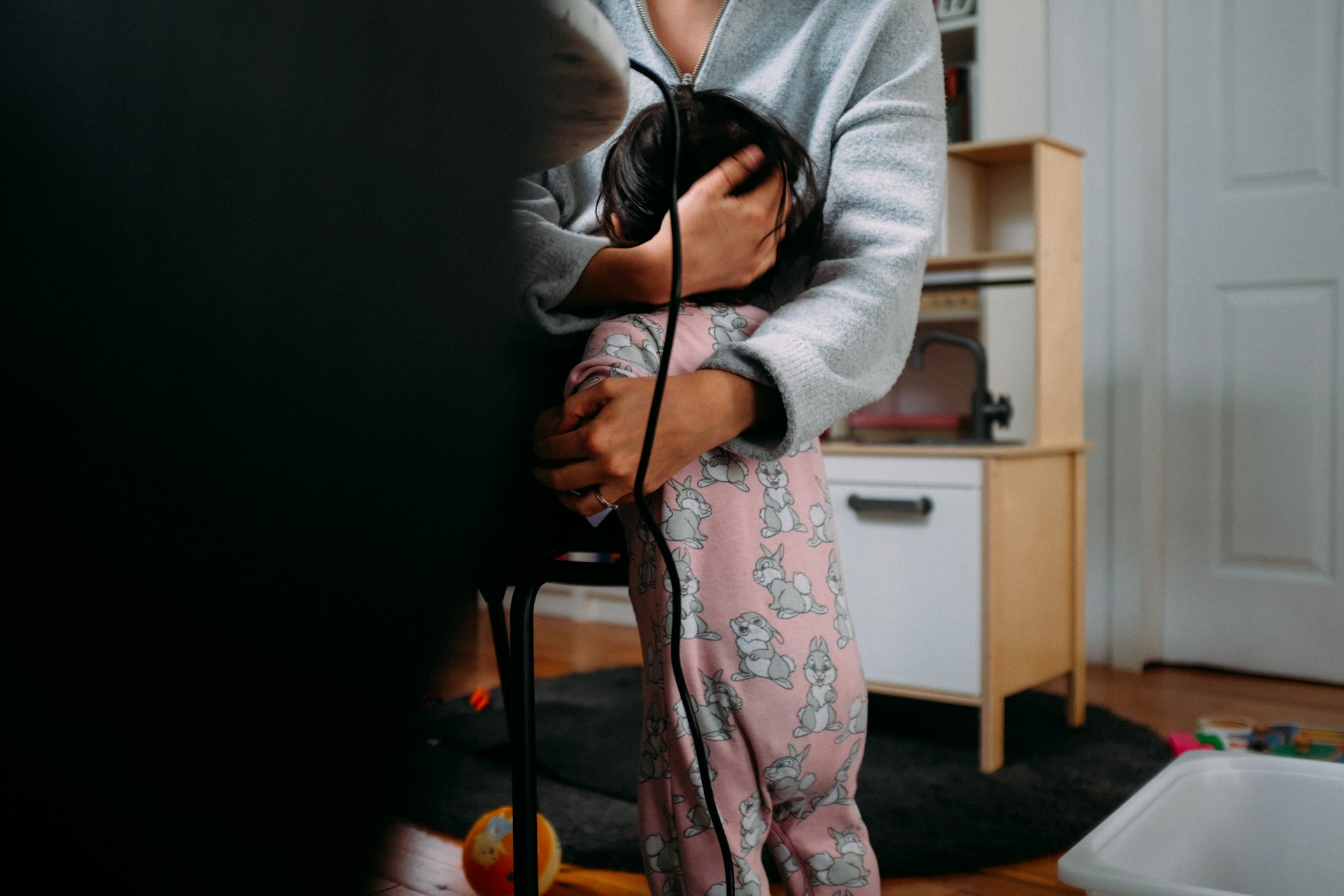Listen to this article
When you’re a child, you’re at your most vulnerable. You depend on the people around you to meet your needs, including your need for food, shelter, attention, and nurture. Children cannot provide for these themselves. Having caregivers who are attentive to your needs and capable of meeting them is essential. Whether or not we flourish in life greatly depends on how much and how well our needs were met or whether we’ve suffered emotional neglect.
Unfortunately, one of the harsh realities of living in a broken world is that one’s needs aren’t always met for various reasons. Many parents are well-intentioned but without the means or the knowledge for how to best meet children’s needs, they can go unmet. Even more harmful is when one sees a need and deliberately decides not to meet it. In either case, whether intentionally or not, childhood emotional neglect is a reality many children face.
What is childhood emotional neglect?
 Childhood emotional neglect is when a parent or caregiver doesn’t respond adequately to a child’s emotional needs. Emotional neglect can be intentional, but it may also be the result of a parent overlooking this one area of a child’s needs.
Childhood emotional neglect is when a parent or caregiver doesn’t respond adequately to a child’s emotional needs. Emotional neglect can be intentional, but it may also be the result of a parent overlooking this one area of a child’s needs.
For instance, a parent or caregiver may fulfill a child’s need for food, shelter, education, and medical treatment, but fail to pay attention to the child’s expressed concerns. Mishandling this one area of a child’s needs is neglectful, even though it may be entirely unintentional.
It may be helpful to provide an example of childhood emotional neglect. A child may express the fact that they are sad or anxious about going to school, and the parent responds by brushing them off or ignoring the concerns the child expressed.
A parent may be thinking that the child isn’t serious, or the situation isn’t serious enough to warrant attention, or they may be busy and don’t slow down enough to really pay attention. Either way, the message to the child is that their emotional needs and concerns are inconsequential.
Other forms of childhood emotional neglect include:
- Brushing off or dismissing the child’s emotions.
- Addressing the child with a cold and unfriendly tone.
- Being unresponsive to the child’s feelings.
- Demeaning a child for their feelings.
- Not talking to the child much.
- Not expressing affection toward them.
- Ignoring the child’s cues for help in problem-solving tasks.
- Spending too little time with the child and making them feel they are unwanted.
- Not giving them positive feedback or praise.
- Socially isolating a child from their peers or loved ones.
- Offering no encouragement when the child fails a task.
- Being disengaged and uninvolved in the child’s life, including a lack of interest in the child’s activities.
- Persistently finding fault with the child.
It’s important to remember that most parents or caregivers try to be the best parents they can be and don’t set out to neglect their child’s emotions. One may be unaware that they are emotionally neglecting their children, and this is the case particularly when they are struggling with the following:
- Mental illness such as depression.
- Extreme stress.
- Substance abuse.
- Pressure from work.
- Experiencing spousal abuse.
- Poverty.
- Being absent due to military service.
- A lack of healthy parenting skills.
A parent may also be experiencing a personal lack of emotional fulfillment, anger, or resentment toward their child, or they may have had a history of neglect when they were children themselves. In such situations of turmoil, connecting and forming meaningful and secure bonds with one’s child can be difficult.
If you are a parent or caregiver, you can check yourself and your behavior toward your child to see if your actions may be emotionally neglectful. You can ask yourself:
- Am I apathetic or indifferent toward the child?.
- Do I view or label the child as a burden?.
- Do I pretend my child doesn’t exist?.
- Do I ignore the child’s needs?.
- Am I engaged in substance abuse?.
- Do I have a mindless or uninvolved approach to my parenting?.
- Do I blame my child for my behavior?.
- Am I constantly calling my child “bad”?.
Is emotional neglect the same thing as emotional abuse?
 Emotional neglect and emotional abuse are different forms of mistreating someone that can have a significant impact on their lives, especially their mental health. The two are distinct, however, and it largely depends on how intentional the actions are. “Emotional abuse” refers to a deliberate act of causing emotional harm to another person. It can take various forms, including humiliating, verbally abusing, manipulating, or threatening someone.
Emotional neglect and emotional abuse are different forms of mistreating someone that can have a significant impact on their lives, especially their mental health. The two are distinct, however, and it largely depends on how intentional the actions are. “Emotional abuse” refers to a deliberate act of causing emotional harm to another person. It can take various forms, including humiliating, verbally abusing, manipulating, or threatening someone.
“Emotional neglect” refers to the failure of a parent or caregiver to provide adequate validation, emotional support, and attention to a child and their psychological and emotional needs. Both emotional abuse and neglect can have long-lasting effects on a person’s self-esteem, self-worth, and their ability to form healthy relationships with others.
Parents are meant to nurture their children and teach them to walk in the Lord’s ways (Ephesians 6:1-4; Proverbs 3), and emotional abuse and neglect violate this sacred trust.
The effects of childhood emotional neglect.
If a child does not have their emotional and psychological needs met, there are several ways it can affect them. These will include the following:
- Anxiety.
- Depression.
- Aggression.
- Low self-esteem and self-compassion.
- Withdrawing from their peers and social activities.
- Insecure attachment.
- Developmental delays.
- Being aggressive toward their parent(s).
- Failure to thrive.
- Disruptive and impulsive behavior.
- Carrying a sense of shame, humiliation, self-blame, and feelings of worthlessness.
- Difficulty paying attention.
- Academic struggles.
- Frequent tantrums.
When a child’s needs are neglected, they will begin to think that their emotions are not okay. Instead of dealing constructively with their emotions and appreciating the role of their emotions in their lives and for their well-being, they may shut down emotionally or do the opposite by lashing out to be heard or noticed.
They may also struggle to ask for help when needed because their parent or caregiver has indicated that they must resolve their problems independently.
Emotional neglect will also have long-term impacts on how a person relates to others. An emotionally neglected child will often grow up to be an adult who, because their emotional needs weren’t validated as children, may not know how to deal with their emotions or the emotions of others. They may have difficulty expressing and understanding emotions, which can be problematic in different relationships.
 Childhood experiences of emotional neglect shape one’s adult interactions, and it can cause deficiencies in a person’s ability to understand, manage, and nurture the emotions of others. Such an individual will thus often be emotionally unavailable, shun intimacy, and engage in angry and aggressive behaviors because they don’t know how to regulate their own emotions.
Childhood experiences of emotional neglect shape one’s adult interactions, and it can cause deficiencies in a person’s ability to understand, manage, and nurture the emotions of others. Such an individual will thus often be emotionally unavailable, shun intimacy, and engage in angry and aggressive behaviors because they don’t know how to regulate their own emotions.
They may also be deeply distrustful of others and struggle to set healthy boundaries, so they will likely have unhealthy and unfulfilling relationships with others.
In addition to other effects of childhood neglect in adulthood, such as post-traumatic stress disorder, depression, a distorted sense of self, low self-esteem, fears of abandonment, and difficulty maintaining relationships, adults who experienced childhood emotional neglect may also become parents who neglect their children emotionally.
Because they never learned the importance of their emotions, they may not know how to nurture and handle emotions in their children.
Can you overcome childhood emotional neglect?
The wounds that are inflicted upon us can mark us in deep ways. The Lord, however, is faithful and gracious, and we can find healing from those wounds that affect us, whether as children or in adulthood. Childhood emotional neglect can be addressed while the person is a child, but it can also be treated when you’re an adult who was neglected as a child. The treatment can look the same, and some of the options available to you or your child include the following:
Counseling.
A psychologist or counselor can help a child grow in their ability to cope with their emotions in a healthy way. Some children may be used to ignoring or suppressing their emotions, leading to tantrums or lashing out.
A counselor can help them learn to recognize and experience their emotions healthily. In the same way, when you’ve  had years of suppressing your emotions, you’ll have major difficulties expressing them or sometimes even understanding them. A counselor can help an adult who has experienced childhood emotional neglect learn to identify, accept, and express their emotions in a healthy and constructive way.
had years of suppressing your emotions, you’ll have major difficulties expressing them or sometimes even understanding them. A counselor can help an adult who has experienced childhood emotional neglect learn to identify, accept, and express their emotions in a healthy and constructive way.
Your counselor can also teach you self-compassion and help you build emotional intelligence so that you can effectively recognize and distinguish emotions in yourself and others, and act appropriately in line with those emotions.
Parenting classes.
At times, emotional neglect is the result of ignorance. A parent who neglects their child’s emotional needs could benefit from parenting classes, as these classes help parents learn the necessary skills to recognize, listen to, and respond effectively to a child’s emotions.
Counseling can happen individually, but a family can also be counseled together, as that can help the parents and the child. A counselor can help parents understand the impact they’re having on their child, and they can also help the child learn to cope with the struggles they may already have. Intervening early will help to curb some of the long-term impacts of emotional neglect so that the child can flourish.
If you experienced childhood emotional neglect, or if you are a parent who may not be meeting all of your child’s emotional needs, don’t hesitate to reach out for help through Christian counseling. In a safe, non-judgmental, and empathetic environment, you’ll be able to unpack your experiences and grow in overcoming the impact of emotional neglect. Begin that journey toward healing today.
“Alone”, Courtesy of Joseph Gonzalez, Unsplash.com, CC0 License; “Bored”, Courtesy of Getty Images, Unsplash.com, Unsplash+ License; “Reflection”, Courtesy of The HK Photo Company, Unsplash.com, CC0 License; “Love”, Courtesy of Mahkeo, Unsplash.com; CC0 License
-
Kate Motaung: Curator
Kate Motaung is the Senior Writer, Editor, and Content Manager for a multi-state company. She is the author of several books including Letters to Grief, 101 Prayers for Comfort in Difficult Times, and A Place to Land: A Story of Longing and Belonging...
DISCLAIMER: THIS ARTICLE DOES NOT PROVIDE MEDICAL ADVICE
Articles are intended for informational purposes only and do not constitute medical advice; the content is not intended to be a substitute for professional medical advice, diagnosis, or treatment. All opinions expressed by authors and quoted sources are their own and do not necessarily reflect the opinions of the editors, publishers or editorial boards of Stone Oak Christian Counseling. This website does not recommend or endorse any specific tests, physicians, products, procedures, opinions, or other information that may be mentioned on the Site. Reliance on any information provided by this website is solely at your own risk.






